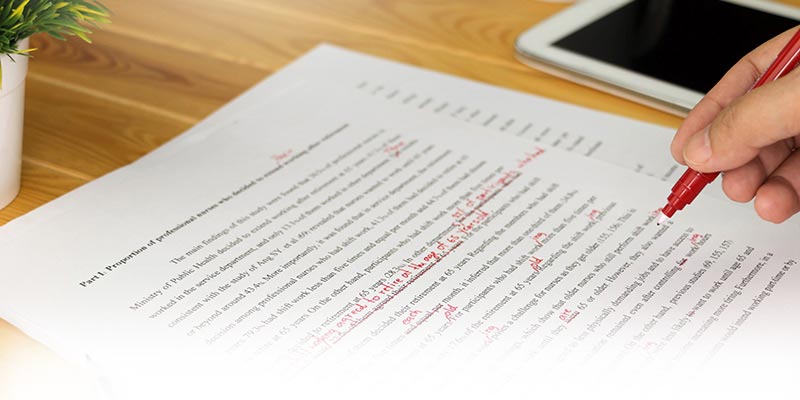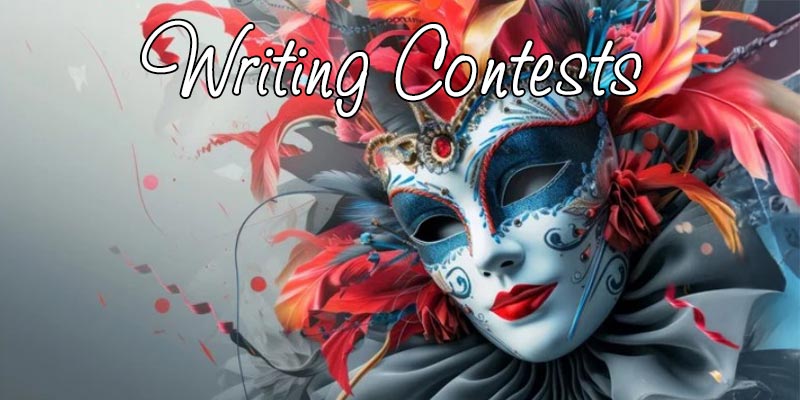
The site for writers of all genre, and the readers who love them. Find what you want to know.
Edit Easier

by Megan Potter
Editing is not a lukewarm writing stage. Either it’s your favorite part about writing or you dread it. Personally, I sort of like this stage. If writing were pottery I would compare writing the rough draft to making the clay, I see editing as my opportunity to mold it into something recognizable.
Writing is created by so many elements, that means that editing has to happen on many levels. When you edit you will be watching for spelling, grammar, word choice, comprehension, tenses, plotting, character development, point of view, and voice. Basically, you are checking to make sure everything about your work sounds good and has a nice flow. You should be prepared to edit one piece three or more times.
I always write my initial drafts out longhand. When I am “in the mood to write” there is just something about pen and paper that completes the process for me. Through experience though I have found another benefit to my habit of having a long handed original. I have noticed that the work I have taken the time to write out first is more organized and has better quality overall. While the pieces that I type directly into the computer need much more editing to make them flow well. That’s because my work gets edited the first time around when I type the story up. As I read and type I naturally fix basic mistakes in structure, spelling and grammar. This makes a cleaner copy. Of course that doesn’t mean that you should stop typing your rough drafts if that is your habit. It is simply to say that your first edit can just involve a quick read over.
For your first time through all you should do is read the piece over and mark the basic errors that catch your eye. You’ll find spelling, typos, grammar, and the occasional sentence/paragraph structure problems. You can correct these changes as you go, but if you notice larger problems such as plot or character you don’t want to take the time to stop and try to fix them. Just mark where the problems are or where changes may need to be made and go on reading. I do this first basic type of edit as I type and again after it’s typed. This way I can catch typos and bigger problems I couldn’t see before.
Now that you’ve typed in your corrections you are going to do your second edit. You are going to need to read it over again, closely, looking for major problems. Check for consistency in point of view, voice and tense, among other things. You’ll also need to watch for the aforementioned issues such as plot and character development. If you had marked some problem areas on the first run through you will need to keep these areas in mind this time.
Watch for ideas for correcting the problems and complications that may arise from altering certain places. Think about what else will need to be removed or changed if you alter or remove the problem area. Also watch for conflict that may arise from your new idea. Once you’ve read it through and you feel confident you’ve found all the areas the rewrite will touch go ahead and start playing around with your new ideas and rewriting the troublesome sections as needed.
Once you’ve typed in those changes you’ll want to read it one more time for typos, spelling and grammar to make sure that your rewrites are smooth. If you are satisfied that you’ve solved the problem and you’ve caught all the small errors you can put the piece away for now. If you find it’s not working keep at it until you are happy, or until you are too frustrated to be effective. It happens that sometimes you get too close to your work. You will either become blind to the flaws or you will become frustrated with your inability to find a solution to the problems that you can plainly see. This is a normal reaction and comes from rereading and rewriting the same thing over and over again. Once you get like this there is no point in going on. Put the piece away for a few days, weeks or months, whatever you need to distance yourself and be able to look at it with fresh eyes. Then start editing and rewriting again. You’ll repeat stages one and two until you are happy with what you have and feel ready to send it out.
AGENTS & EDITORS
- Agents: Knowing When To Hold One and When To Fold
- Copyright Primer, Know Your Rights
- Getting Offers from Multiple Literary Agents
- Landing An Agent Elements Of A Winning Query
- Literary Agents List
- Preditors and Editors
- Publishing, Writing Terms, Acronyms
- Tips for a Successful Editor Appointment
- Want More? Here’s How to Get It
- What NOT to Do When Beginning Your Novel
- Windup for the (Story) Pitch
- Write the Perfect Book Proposal
CALLS FOR SUBMISSIONS
![]()
CALLS FOR SUBMISSIONS MAIN PAGE
- 2026 FEB Calls for Submissions
- 2026 JAN Calls for Submissions
- 2025 DEC Calls for Submissions
- 2025 NOV Calls for Submissions
- 2025 OCT Calls for Submissions
- 2025 SEP Calls for Submission
- 2025 AUG Calls for Submission
- 2025 JUL Calls for Submission
- 2025 JUN Calls for Submission
- 2025 MAY Calls for Submission
- 2025 APR Calls for Submission
- 2025 MAR Calls for Submission
COMPUTER TIPS
- ASCII Characters
- Building Your Web Site and Doing It Right
- Don’t Be a Victim-Scams, Identity Theft, Urban Legends
- Don’t Spread Scams
- Free AI Tools That Can Be Used In Business Writing
- How to Annoy Your Website Visitors
- If Your Data Is Compromised
- Internet Safety: Guide to Keep Your Information Safe Online
- Knowing Your Target Audience
- Online Safety for Kids and Teens
- Stopping Viruses from Propagating Through Your Email
- The Top 10 Email Errors
- Word Processors Through Time: Before MS Word & Google Docs
GRAMMAR & FORMATTING
![]()
GRAMMAR & FORMATTING MAIN PAGE
- Achieving 250 Words / 25 Lines Per Page
- And Sammy, Too? Oh, No!
- Changing Double Hyphens to EM Dashes in Word
- Edit Easier
- High Hopes–Avoiding Common Mistakes
- Misused Words
- Navigating In Your Novel
- Proofreaders Marks
- Research Links
- Rules for Writers
- Slang and Jargon Souces
- Tightening Your Manuscript and Trimming the Word Count
INSPIRATION-& MOTIVATION
![]()
INSPIRATION & MOTIVATION MAIN PAGE
- A Dream Realized
- Beyond the Basics
- Dumb Little Writing Tricks That Work
- Finding Time to Write
- Five Ways to Promote Yourself
- How Not to Procrastinate
- How to Quit Writing and End up on the Bestseller Lists
- Ideas Escape Me
- Keeping an Idea Book
- Love to Write: Here Is How You Can Build Your Career
- Making Time for Self-Care While Running a Business
- Moving Up the Rejection Ladder
- Pop Quiz: Who Are You?
- Rules for Writers
- The 8 Habits of Highly Successful Young-Adult Fiction Authors
- The Art of Being Rejected–475 Words
- The Juggling Act
- The Literary Food Chain
- Various Types of Writing for Young Writers
- Why Article Writing Should Be A Part Of Your Career Development Strategy
- Write Better Naked
- Writer’s Conferences Do You Really Need To Attend?
- Writing By Moonlight
MARKETS & JOBS
- 35 Online Work Ideas to Earn Good Money Whilst Studying
- An Interview with Holly Ambrose
- Copyright Primer, Know Your Rights
- EBooks-Fears to Possibilities
- Finding Markets Fiction and Nonfiction
- Freelance Writing 101
- Getting Offers from Multiple Literary Agents
- How To Be a (Shiver) Reporter
- How To Market Your Book After You’ve Written It
- How to Write a Novel Synopsis
- Love to Write: Here Is How You Can Build Your Career
- Magazine Links
- Making Money As a Corporate Freelancer
- Market News–All Genres
- Need a Clip? Open a Newspaper
- Newspaper Writing Resources
- Path to Self-Publishing Success
- Publishing, Writing Terms, Acronyms
- Science & Science Fiction Writing Organizations
- Selling to Children’s Markets
- Submission Tracking
- Submitting to UK Markets
- Syndication 101
- To Specialize, or Not to Specialize?
- Ultimate Guide to Being a Freelancer 2025 Update
- What Are Your Chances of Getting Published?
- Why Article Writing Should Be A Part Of Your Career Development Strategy
- Why E-Books?
- Words That Pay-The Rewards Of Choosing Writing As A Job
- Write the Perfect Book Proposal
- Write Your Way to $1000 a Month
- Writing Groups List
- Youth Writing Markets
ONLINE SAFETY
PUBLISHING
- Agents: Knowing When To Hold One and When To Fold
- Copyright Primer, Know Your Rights
- Getting Offers from Multiple Literary Agents
- How To Market Your Book After You’ve Written It
- How to Write a Novel Synopsis
- Landing An Agent Elements Of A Winning Query
- Love to Write: Here Is How You Can Build Your Career
- Making Money As a Corporate Freelancer
- Navigating In Your Novel
- Path to Self-Publishing Success
- Publisher’s Websites
- Publishing, Writing Terms, Acronyms
- Rules for Writers
- Science & Science Fiction Writing Organizations
- Submission Tracking
- Syndication 101
- The Great Limbo Mystery Question
- Tightening Your Manuscript and Trimming the Word Count
- What Are Your Chances of Getting Published?
- Why Article Writing Should Be A Part Of Your Career Development Strategy
- Why E-Books?
- Write the Perfect Book Proposal
WORKSHOPS & CONFERENCES
WRITER'S LIFE
- A Dream Realized
- A Writers Dream-The Home Office
- Affirm All You Want
- Copyright Primer, Know Your Rights
- Finding Time to Write
- Finding Your Writing Compass: A Guide to Freelance Adventures
- How To Be a (Shiver) Reporter
- How To Write Your Own Press Releases
- Keep a Clipping File
- Keeping an Idea Book
- Love to Write: Here Is How You Can Build Your Career
- Making Time for Self-Care While Running a Business
- Mommy’s Muse
- Moving Mountains
- Mud Pies
- Pop Quiz: Who Are You?
- Teach Yourself to Write
- The 8 Habits of Highly Successful Young-Adult Fiction Authors
- The Art of Procrastination
- Various Types of Writing for Young Writers
- Working with a Critique Group
- Writer’s Conferences Do You Really Need To Attend?
- Writing Conferences-Educating and Inspiring
WRITING CONTESTS
![]()
ABOUT WRITING CONTESTS
- A Guide to Assessing Writing Contests
- Writer’s Conferences Do You Really Need To Attend?
- Writing Groups List
- 2026 FEB Writing Contests
- 2026 JAN Writing Contests
- 2025 DEC Writing Contests
- 2025 NOV Writing Contests
- 2025 OCT Writing Contests
- 2025 SEP Writing Contests
- 2025 AUG Writing Contests
- 2025 JUL Writing Contests
- 2025 JUN Writing Contests
- 2025 MAY Writing Contests
- 2025 APR Writing Contests
- 2025 MAR Writing Contests
WRITING TOOLS & APPS
![]()
WRITING TOOLS & APPS MAIN PAGE
- And Sammy, Too? Oh, No!
- Beyond the Basics
- Changing Double Hyphens to EM Dashes in Word
- Dumb Little Writing Tricks That Work
- Finding Your Writing Compass: A Guide to Freelance Adventures
- Free AI Tools That Can Be Used In Business Writing
- Helpful Books
- High Hopes–Avoiding Common Mistakes
- Ideas Escape Me
- Knowing Your Target Audience
- Magazine Links
- Misused Words
- Path to Self-Publishing Success
- Pop Quiz: Who Are You?
- Reconsider Hand Writing
- Research Links
- Slang and Jargon Souces
- The 8 Habits of Highly Successful Young-Adult Fiction Authors
- Unblocking Your Muze
- Various Types of Writing for Young Writers
- What NOT to Do When Beginning Your Novel
- Why Article Writing Should Be A Part Of Your Career Development Strategy
- Word Processors Through Time: Before MS Word & Google Docs
- Working with a Critique Group
- Writing Groups List
- You Can Write A Short Story: Part 1 The Story Idea
- You Can Write A Short Story: Part 2 The Meat of the Story
- You Can Write A Short Story: Part 3 The Climax





